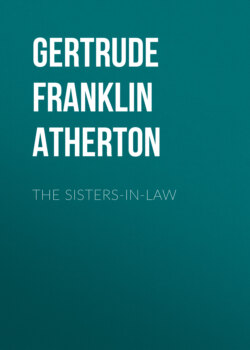Читать книгу The Sisters-In-Law - Gertrude Franklin Horn Atherton - Страница 22
На сайте Литреса книга снята с продажи.
V
ОглавлениеTable of Contents
Mrs. Dwight had repeated this conversation to Gora shortly before her death, and the girl in her reminiscent mood recalled it as she stared with somber eyes and ironic lips at the havoc the fire was playing with those lofty mansions which had stood to her all these intervening years as symbols of the unpardonable injustice of class.
She recalled another of the few occasions when Mrs. Dwight, who believed in acceptance and contentment, had been persuaded to discuss the idiosyncrasies of her adopted city.
"It isn't that money is the standard here as it is in New York. Of course there is a very wealthy set these late years and they set a pace that makes it difficult for the older families, like the Groomes for instance—I met Mrs. Groome once at a summer resort where I was housekeeper that year, and I thought her very typical and interesting. She was so kind to me without seeing me at all. … But those fine old families, who are all of good old Eastern or Southern stock—if they manage to keep in society are still the most influential element in it. … Family. … Having lived in California long enough to be one of that old set. … To be, without question, one of them. That is all that matters. I've come in contact with a good many of them first and last in my poor efforts to help your father, and I believe the San Franciscans to be the most loyal and disinterested people in the world-to one another.
"But if you come in from the outside you must bring money, or tremendous family prestige, or the right kind of social personality with the best kind of letters. We just crept in and were glad to be permitted to make a living. Why should they have taken any notice of us? They don't go hunting about for obscure people of possibly gentle blood. That doesn't happen anywhere in the world. You must be reasonable, my dear child. That is life, 'The World.'"
But Gora was not gifted with that form of reasonableness. She had wished in her darker moments that she had been born outright in the working-class; then, no doubt, she would have trudged contentedly every morning (except when on strike) to the factory or shop, or been some one's cook. She was an excellent cook. What galled her was the fact of virtually belonging to the same class as these people who were still unaware of the existence of her family, although it had lived for over thirty years in a city numbering to-day only half a million inhabitants.
She was almost fanatically democratic and could see no reason for differences of degree in the aspiring classes. To her mind the only line of cleavage between the classes was that which divided people of education, refinement of mind manners and habits, certain inherited traditions, and the mental effort no matter how small to win a place in this difficult world, from commonness, ignorance, indifference to dirt, coarse pleasures and habits, and manual labor. She respected Labor as the solid foundation stones upon which civilization upheld itself, and believed it to have been biologically chosen; if she had been born in its class she would have had the ambition to work her way out of it, but without resentment.
There her recognition of class stopped. That wealth or family prominence even in a great city or an old community should create an exclusive and favored society seemed to her illogical and outrageous. A woman was a lady or she wasn't. A man was a gentleman or he wasn't. That should be the beginning and the end of the social code. … When she had been younger she had lamented her mean position because it excluded her from the light-hearted and brilliant pleasures of youth; but as she grew older this natural craving had given place to a far deeper and more corrosive resentment.
She had no patience with her brother's ingenuous snobbery. A good-natured friend had introduced him to one or two houses where there were young people and much dancing and he had been "taken up." Nothing would have filled Gora with such murderous rage as to be taken up. She wanted her position conceded as a natural right.
Had it been in her power she would have forced her conception of democracy upon the entire United States. But as this was quite impossible she longed passionately for some power, personal and irresistible, that would compel the attention of the elect in the city of her birth and ultimately bring them to her feet. And here she had a ray of hope.
